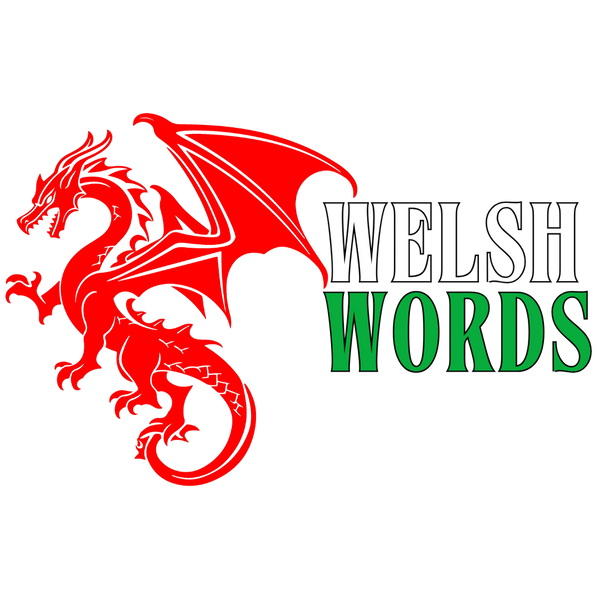
10 Easy Welsh Words for Beginners
Master Welsh with our guide to 10 essential words! Learn greetings, gratitude, and more to boost fluency for travel or cultural experiences!
Clearing that intimidating hurdle of the foreign language barrier is gratifying, but when it comes to Welsh with its glorious past and its exotic sounds, it also offers an especially challenging, but very rewarding, opportunity to those who will take on the task. Whether you’re visiting on holiday, undertaking something entirely new or giving one of the world’s oldest languages a go, there’s no need to panic. With this handy guide we’ve got you covered. Here are 10 basic words in Welsh to get you started in the right foot - so you can sound cool and confident every step you take on your way to fluency.
1. Shwmae - Hello
Your first Welsh utterance could be Shwmae (shuh-my), the informal and friendly greeting used in South Wales. Helo is the literal equivalent to hello but if you want to sound like a local, being able to say shwmae is a great ice-breaker. North Wales, you’ll often hear S’mae (sih-my), and this is just as common.

2. Diolch - Thank you
Gratitude is important in all cultures, and ‘Diolch’ is the word to use in Welsh. It’s one of the easiest, and nicest-sounding ways to be polite in conversation, whether you are thanking someone for help, service or praise. For an extra-enthusiastic thank you, say Diolch yn fawr (dee-olch un vow-er) or ‘thank you very much’.
3.Ie / Na - Yes / No
Every novice must first learn how to say yes and no! Ie (yes) and Na (no) are simple words that you’ll soon be using regularly. Welsh offers several forms of yes and no that depend on the nature of the question, but, as a beginner, these simple forms will cover you for most situations.
4. Bore da - Good morning
This friendly, polite greeting is Bore da (bor-eh da), which means ‘Good morning’. Say it as you go along, and before you know it, some of the sounds you encounter that are unique to Welsh will become familiar to you, and you will begin to understand the Welsh alphabet and how it sounds.
Bore da is a lovely greeting, and you can practise saying it everywhere: in shops, in cafés, on the bus, in the street.
5. Nos da - Good night
The partner to Bore da is Nos da (noss da), also a hugely familiar and endearing endearment to know when saying goodnight - be that rounding off an evening chat or, at bedtime: Nos da iawn.
Learning ‘Nos da’, for example, will not only teach you a useful expression, but will also help you to comprehend how Welsh phrases sound, and to speak with fluency in the long run.

6. Hwyl - Bye / Fun
A useful Welsh word, hwyl (hoil) can mean both goodbye and fun. It’s used in casual farewells but it can also be used in the sense of ‘that was fun!’ in English.
Not only is hwyl a simple word, but it is one with two meanings. It is useful to say to a departing group of friends: ‘Hwyl fawr!’ This means ‘Goodbye’ or ‘Have fun!’
7. Tŷ - House
Tŷ (pronounced tee) means ‘house’. It’s the first word you’ll see everywhere these days, particularly on buildings, signs and place names. Learning basic nouns such as this is a good way to recognise patterns in Welsh names – and a good step towards giving a fluent tour of your local area.
It’s important to recognize that the circumflex accent on the letter ‘y’ (ŷ) is crucial for understanding its context. This is particularly relevant because the Welsh word for ‘you’ which is ‘Ti’ is pronounced the same as ‘tee’. A helpful rule of thumb is that a circumflex over a letter in Welsh lengthens the sound of that letter.

8. Cariad - Love / Dear
It is a Welsh word for love (car-ee-ad) and can be used romantically but it’s also just a general term of affection for family or friends that you can use with anyone. You’ll often hear parents calling their kids cariad (just like calling them darling or sweetheart in English).
Knowing this word not only allows you to say ‘I love you’, but also places you at the heart of Welsh cultural values – family and community.
9. Cymru - Wales
Cymru, (pronounced kum-ree) has a real buzz to it, which is why you will hear it so often – especially in sport but any time the region gathers together for a national event. Cymru literally means Wales.
If you’re learning Welsh, among the first words you will have to learn is Cymru, and you will feel that you are entering into a deeper, national history and identity, and you will feel it in the language you are learning.

10. Dŵr - Water
Dŵr (pronounced doer) means water - a simple but essential word, frequently heard (or seen on signs) in everyday conversation, and particularly when exploring the nation’s spectacular natural environment. Or ordering a beverage.
Pronouncing and accepting words like Dŵr get you into the habit of using a useful, everyday vocabulary and, over time, you’ll learn more Welsh words, giving you the confidence to start conversing in Welsh fluently.
Learning Welsh, like any language, is a process that takes time and study, but these 10 words will get you off to a great start. The key to making continued progress is to keep practising – use these words as you go about your day, at home, with friends or in Wales. Don’t worry if you make mistakes (you will) and don’t expect to be fluent immediately, because you won’t be but, over time, you’ll be speaking Welsh before you know it.
